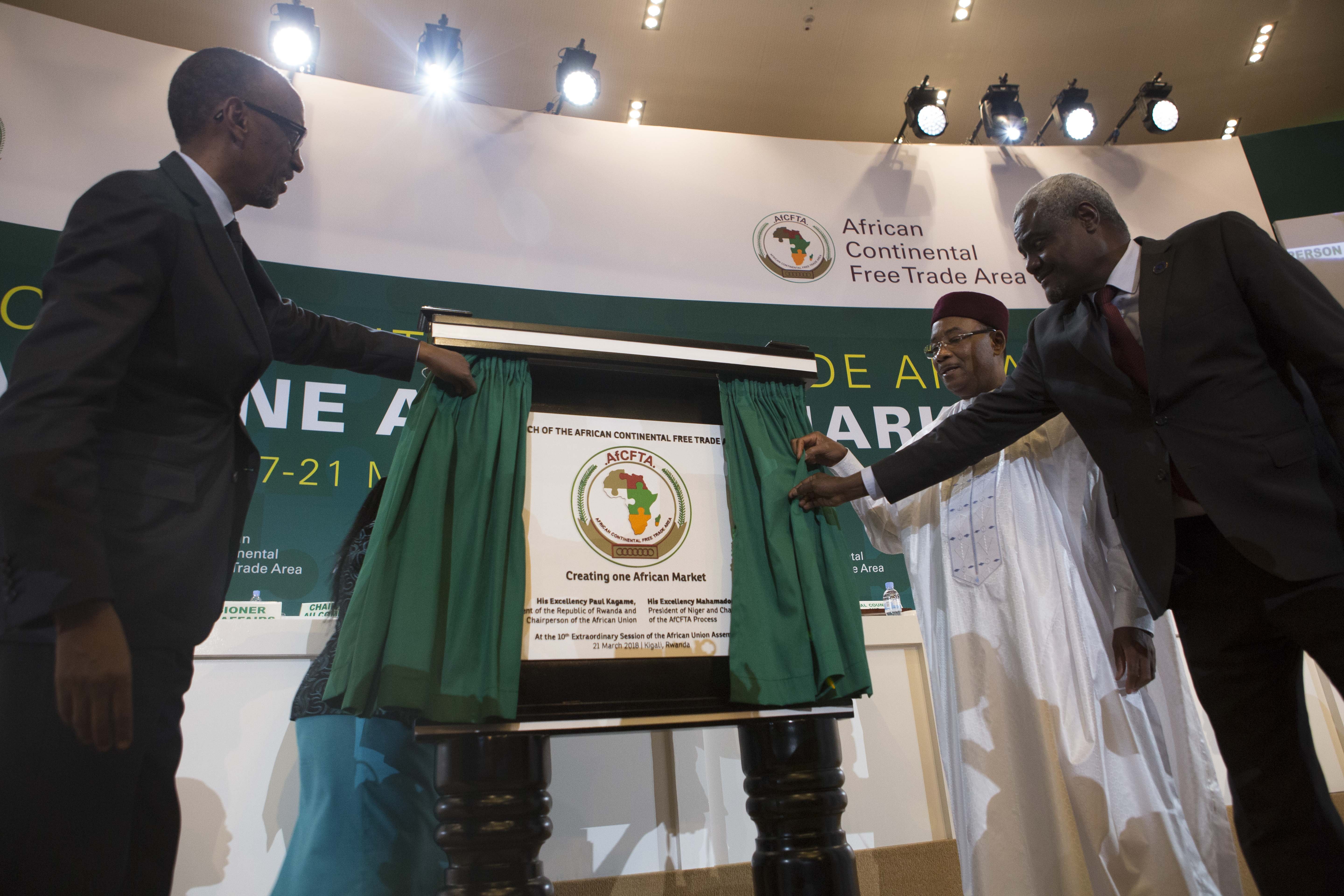China-Africa trade is for the long haul
- By Daniel Hyatt
 0 Comment(s)
0 Comment(s) Print
Print E-mail China.org.cn, June 27, 2019
E-mail China.org.cn, June 27, 2019

Africa is the world's next investment destination. Shedding its colonial past, the continent is looking forward to harnessing the opportunities offered by the 21st century. China, meanwhile, is offering its growing domestic market to African enterprises eager to expand their global outreach.
Today's Africa is a far more integrated entity than it was before. The African Union (AU) has transformed itself into a highly functional international body and presents its members as one united voice. A remarkable step taken by the union to tap Africa's resources for African nations and peoples has come in the form of the African Continental Free Trade Agreement (AfCFTA).
Free trade played a substantial role in consolidating China's commercial relations with the rest of the world. AfCFTA will, in the same way, lift intra-African trade and plug the signatory countries into the world of international commerce. It will also help initiate joint developmental activities to spur an inclusive and multilateral environment for all.
For a decade now, China has been Africa's largest trading partner with an accumulated investment of over $110 billion. Far from how it has been popularly perceived, this affair has not been one way. Africa's exports to China rose 32% year on year in 2018, and mainly constituted agricultural products. China, on the other hand, mainly exports electrical and hi-tech products to the African continent.
Other forms of cooperation include currency swap agreements between China and several African countries and the inclusion of the RMB in foreign exchange reserves. This depicts Africa's growing level of confidence in its long-term trading relationship with China. Chinese enterprises working in Africa totaled 3,700 and their combined direct investment was $46 billion last year – a clear sign that trade between the two is likely long term.
A key area with scope for mutual trade is e-commerce, since it is not as saturated in Africa as it is in other parts of the world. Among its advantages is its ability to allow manufacturers to cut intermediary costs, integrate into the global value chain and reach customers on a global scale.
As part of ongoing collaborations, Chinese e-commerce giant Alibaba is training 1,000 young Africans under the "Vision for Africa" program in several sectors associated with the company. Local e-commerce companies are focusing on launching third-party platforms and recruiting Chinese sellers to serve the growing China-Africa market. As the interoperability of firms rises, trade volume is expected to grow exponentially.

Africa's trade capacity can be further expanded by fixing its infrastructure deficit. China has extensive experience in improving its own infrastructure to connect heartland cities with trading hubs on the coastline. These upgrades have led to higher wages in port cities, lower production costs and the growth of new industrial clusters.
China has already demonstrated that this same approach can be adopted in Africa. The rail projects in Kenya, Ethiopia and other countries have already begun to transform local economies. The transferred technology from China has also made the recipient nations self-sufficient and given them the ability to independently undertake future expansion projects themselves.
Now that infrastructure development is an integral part of the AfCFTA, it is now possible for China and Africa to advance their connectivity and allow landlocked countries to maximize their export base.
The most significant contribution by China to address Africa's infrastructure shortfall is the Belt and Road Initiative (BRI). The BRI provides different routes for Africa to expand its trade with China and beyond. One is the maritime silk route that passes through the Strait of Malacca and reaches the eastern ports of China. The other is land-based, starting from the strategic deep-sea port of Gwadar in Pakistan, passing through the China-Pakistan Economic Corridor (CPEC) and culminating at China's northwestern Xinjiang Uygur Autonomous Region.
Although the sea route has existed for centuries, the land-based CPEC has only recently been launched. Allowing trade and the transport of goods to take place in a shorter period of time and for a fraction of the previous cost, the CPEC serves as a better route to connect to Central Asia and Russia. In addition, the CPEC opens the Pakistani market to traders who are looking for unsaturated and emerging economies.
China and Africa are holding a trade expo on June 27-29 in Changsha, the capital city of China's central Hunan province. More than 50 nations will participate in the event, and a multitude of deals will promote trade between the two sides, expose products and services and establish business partnerships. The expo comes as a follow-up of the Forum on China-Africa Cooperation (FOCAC) – a major diplomatic platform that aims to address issues facing over 2.5 billion people. Seen as a catalyst for improving economic ties, the biannual trade expo has even received acknowledgment from the United Nations Economic Commission for Africa (UNECA).
As trade between China and Africa grows, businesses in the two regions will prosper and contribute to raising the living standards of communities. Disposable incomes of the African people will rise, in turn increasing their capacity to buy goods and services from China. Such consequential benefits to both sides can be regarded as the very essence of the win-win outcome that today's international trade system needs.
Daniel Hyatt is a Pakistan-based freelance journalist and commentator on modern China.
Opinion articles reflect the views of their authors only, not necessarily those of China.org.cn.
If you would like to contribute, please contact us at opinion@china.org.cn.






Go to Forum >>0 Comment(s)